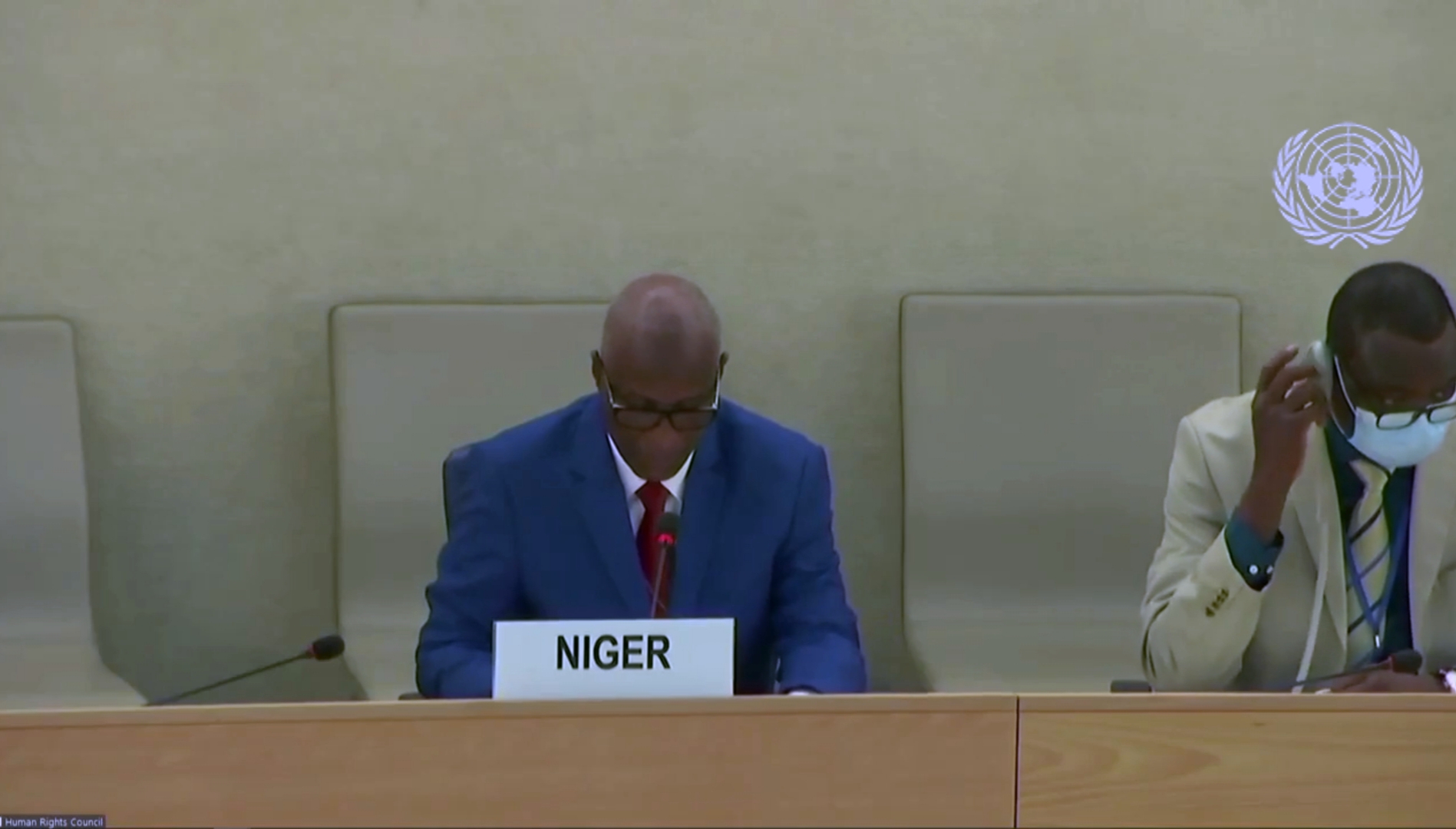On 30 September 2021, the Minister of Justice of Niger Boubakar Hassan has presented the final document to be adopted for the Universal Periodic Review of Niger. Amongst the 254 recommendations received by Niger, 248 were accepted ranging from strengthening the normative and institutional framework of human rights, enhancing the cooperation with human rights mechanisms and the promotion of civil rights. The acceptance of all the recommendations that prioritise girls’ education were notably commended by States and civil society organisations.
In a joint statement, Kanni Abdoulaye, the Coordinator of the Collectif des Organisations de Défense des Droits de l’Homme et de la Démocratie (CODDHD) stated that “since its last examination, Niger only managed to partially lift the restrictions against civil society. Moreover, in 2019, the country adopted a law on cybercriminality which had repressive outputs on activists.”
In addition, other civil society organisations reported the lack of civil society’s space, of freedom of speech, the criminalization of protesters and certain human rights defenders as well as the concerning frequency of child marriages. On these matters, the implementation actions that followed the last UPR examination have not met the expectations of the recommendations so far.
The security context in Niger remains alarming. Indeed, the COVID-19 pandemic and terrorism have hindered the government’s efforts towards proper implementations of the recommendations. The country has called the international community to vividly support Niger and the countries affected by terrorist attacks in the region.




